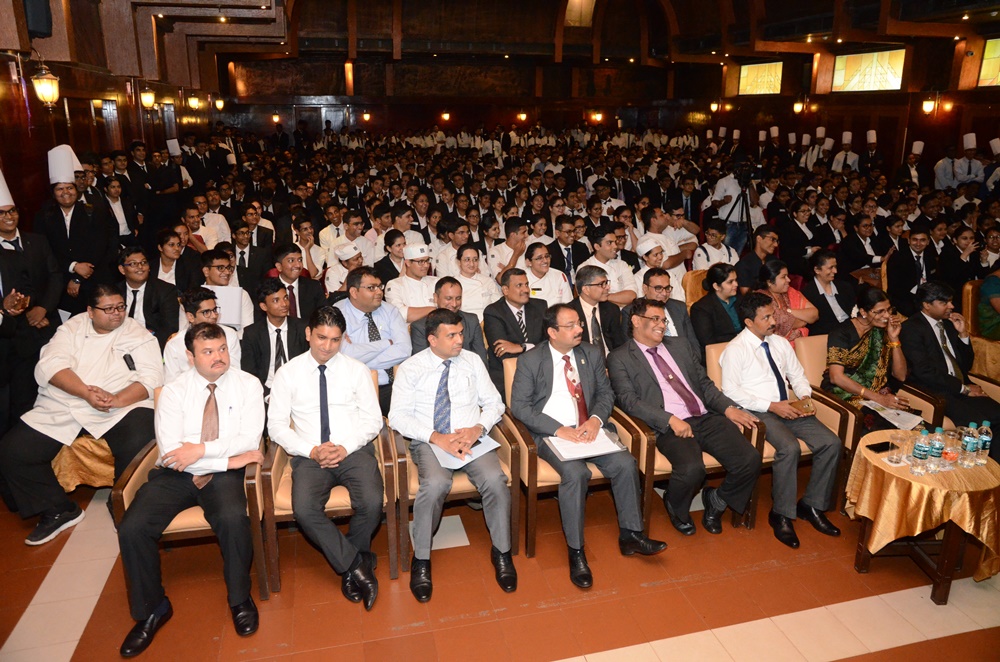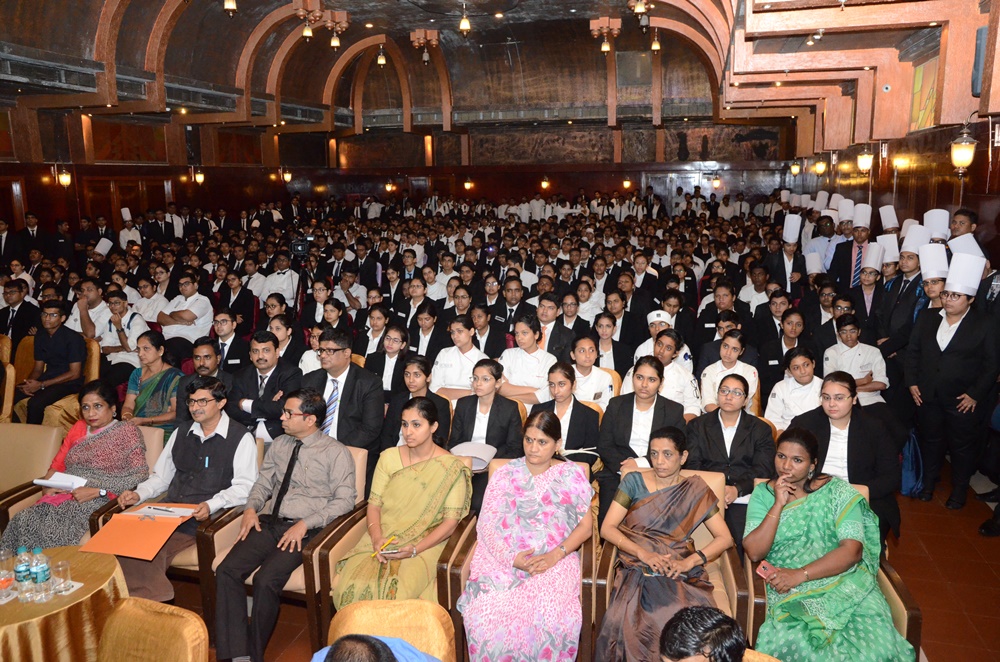'Plays on Mahatma Gandhi' Competition held at WGSHA MAHE
Institute level competition on “Plays on Mahatma Gandhi” held today at WGSHA as part of making the commemoration of 150th birth anniversary of the father of the nation Mahatma Gandhi. Prof Varadesh Hiregange - Director, Centre for Gandhian and Peace Studies, MAHE was the chief guest
August 23, 2018
Commemorating 150 years of Mahatma Gandhi at WGSHA
Mohandas Karamchand Gandhi (2 October 1869 – 30 January 1948) was an Indian activist who was the leader of the Indian independence movement against British rule. Employing nonviolent civil disobedience, Gandhi led India to independence and inspired movements for civil rights and freedom across the world. In India Gandhi ji, and known as the Father of the Nation.
Seeing as it has been 150 years since the birth of one out countries hero’s it was only apt that we celebrate it through the expression of an art form like theatre. We not only celebrated his birthday but also pay homage to him on Martyrs day as he laid down his life for our nation. Mahatma Gandhi’s principle of ‘Ahimsa’ is relevant in today’s times with the world facing terrorism and other forms of violence. He strived to lead the country to not just political independence but to a better India and a society free of caste, religious, economic and even gender prejudices.
To celebrate this occasion, the University Grant’s Commission is conducting a nation-wide competition on ‘Plays of Mahatma Gandhi’. As a mark of befitting respect to our beloved leader, Welcomgroup Graduate School of Hotel Administration, Department of Culinary Arts and Dept. of Allied Hospitality Studies was proud to be participating in this initiative.
The competition was held on the 23rd of August Thursday at 2:30 pm at the fortune inn valley view banquet hall- Chaitya. We had a delightful gathering of 1000 students as well as 40 faculties were present for the event. Including our Principal Prof. Parvadhavardhini Gopalakrishnan as well as Vice- Principal Chef Thirugnanasambanthan. Our chief guest and judge for the event was Prof. Varadhesh Hiregange, Director, Centre for Gandhian and Peace studies. Prof. Hiregange was previously associated with School of Communication as its director and was a journalist for Deccan Herald. His expertise in this field made him well placed to judge our very own participants.
Students were asked to put forth an act for 20 minutes and it had to depict one or multiple impactful incidents from Mahatma Gandhis life that asserted his character and set his trend towards the countries freedom struggle. Houses were encouraged to include bhajans, songs and other various forms of the performing arts along with their acting. The four teams performed excellently, depicting the true struggle and bringing to life, some key incidents in Mahatma’s life.
Teams enacted on different life instance of Gandhiji as one of which was based on the quit India movement led by Mahatma Gandhi.
The Quit India Movement, or the India August Movement, was a movement launched at the Bombay session of the All-India Congress Committee by Mahatma Gandhi on 8 August 1942, , demanding an end to the British rule. Gandhi made a call to Do or Die in his Quit India speech. The All-India Congress Committee launched a mass protest demanding what Gandhi called "An Orderly British Withdrawal" from India. Almost the entire leadership of the Indian National Congress was imprisoned without trial within hours of Gandhi's speech. . In terms of immediate objectives, Quit India failed because of heavy-handed suppression, weak co-ordination and the lack of a clear-cut programme of action. It was brief attempt to depict the quit India movement.
Next team presented the play on Gandhi during the time he was in South Africa. The play basically covered how he was treated in South Africa, the train incident when he was thrown out of the train because he was traveling in a first class. The second incident was when Mahatma Gandhi returned from India to South Africa and was beaten by a mob at the station and how a South African police officer wife saved him. And at last Gandhi Ji refused to press charges against the mob and accepted the apology calmly.
Third team depicted a play on the Champaran Satyagraha of 1917, in the Champaran district of Bihar, India during the period of the British Raj, was the first Satyagraha movement inspired by Gandhi and a major revolt in the Indian Independence Movement.
Champaran Satyagraha was the first to be started, but the word Satyagraha was used for the first time in Anti Rowlatt Act agitation.
Winning team presented a play on incidents from Gandhi’s personal life. The aim was to bring out the story behind some of the most pivotal and revolutionary ideas like his faith in ‘Ram’, ‘Satyagraha’ and how he decided to fight for the right of Indians through ‘Ahimsa’
They combined theatre with singing and dancing and also depicted the Swadeshi movement and the Dandi March.
Results were announced soon after the Chief guest was honoured with a memento presented by Prof. Parvardhavardhini G, on behalf of WGSHA.
Rajputana house bagged the first place. The Chief Guest Prof. Varadhesh Hiregange, addressed the gathering with his inspiring and thought-provoking message by recalling the life instances of Mahatma Gandhi.
The principal of the college also shared her message with the students on how every students has to imbibe the principles of Gandhi in their life and to abolish untouchability, ahinsa and terrorism and follow swachhata abhiyan. Principal madam ended her message to students by quotes of Mahatma Gandhi “A customer is the most important visitor on our premises. He is not dependent on us. We are dependent on him. He is not an interruption in our work. He is the purpose of it. He is not an outsider in our business. He is part of it. We are not doing him a favour by serving him. He is doing us a favour by giving us an opportunity to do so.”
Please watch the Aerial Drone Shot of the new Culinary Arts Building of the Manipal Academy of Higher Education captured on the occasion of International Chefs Day celebration.
Trending

WGSHA's HODs and Functional Heads Retreat 2025 held at Bekal

WGSHA contingent for Republic Day Parade 2025 wins II Best Contingent Award at MAHE, Manipal.

WGSHA Hosts Inspiring Session on Mental Well-Being for Students

Hospitality 201 Training – Batch III concluded for ITC Infotech at WGSHA

The Culinary Boot Camp for the KGCHS, Korea concluded
.JPG)
.JPG)
.JPG)
.JPG)
.JPG)
.JPG)
.JPG)
.JPG)
.JPG)
.JPG)
.JPG)

